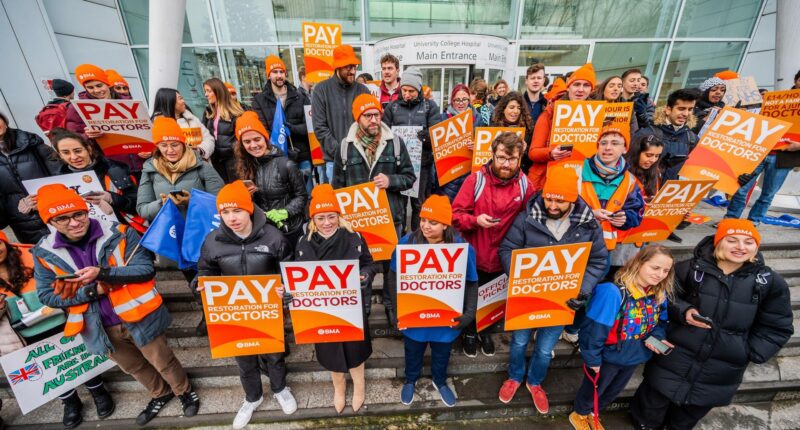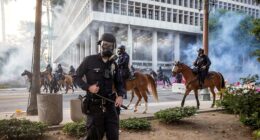MILITANT junior doctors boast that strikes which crippled NHS services across Britain allowed them to spend time hanging out with mates.
Dr Emma Runswick said 18-months of industrial action gave them “respite” from being overworked.



The Deputy Chair of the British Medical Association (BMA) council stated that doctors use strike action as a means of respite from overwork and as an opportunity to reconnect with friends due to the usual separation caused by their work rota. She emphasized that strikes are not only a break but also an effective tool to bring about change.
In addition to these insights, she threatened to go on strike for increased pay, disregarding the recent 22% pay rise granted by the new Labour government. Junior doctors were also given a new designation of “resident doctors” as part of the changes.
“We are raring for action if governments do not continue a path to pay restoration,” Dr Runswick wrote in a report on strikes this month.
Shadow Health Secretary Ed Argar condemned the resident doctors’ strikes, highlighting the detrimental impact they had on the health service and how they left thousands of patients without necessary care.
“So this commentary will be seen by many as another slap in the face of the public, as well as raise real concerns for the prospect of future strikes.
“But this is a mess of Labour’s making. When they handed over an inflation busting 22 per cent with no strings attached they made it clear that striking pays, and it seems they are about to learn their lesson.”


NHS strikes cost the taxpayer almost £1.7 billion and over 1.5 million appointments were cancelled.
In her essay, Dr Runswick said the BMA was now like the “radical” RMT union which crippled the country’s rail system with walkouts.
And she hinted at co-ordinated strikes with other unions: “Some BMA members are turning to work with other unions, but fundamentally other workers and their unions must respond to the gauntlet thrown down.
“Radical, successful trade union wins are possible with clear political direction and organisation.”
A BMA spokesperson said: “Strike action should never have been necessary but was made so by the inaction of the previous Government.
“There is no need for future strikes if in 2025 the Government continues along the journey to pay restoration it started this year. If it fails to do so, it knows it will be back on a collision course with doctors who have seen their pay cut so aggressively since 2008.
“Rotas in the NHS frequently prevent doctors spending time with their friends and for many doctors strike action will have been a rare opportunity to stand alongside colleagues they rarely get to see.”

















